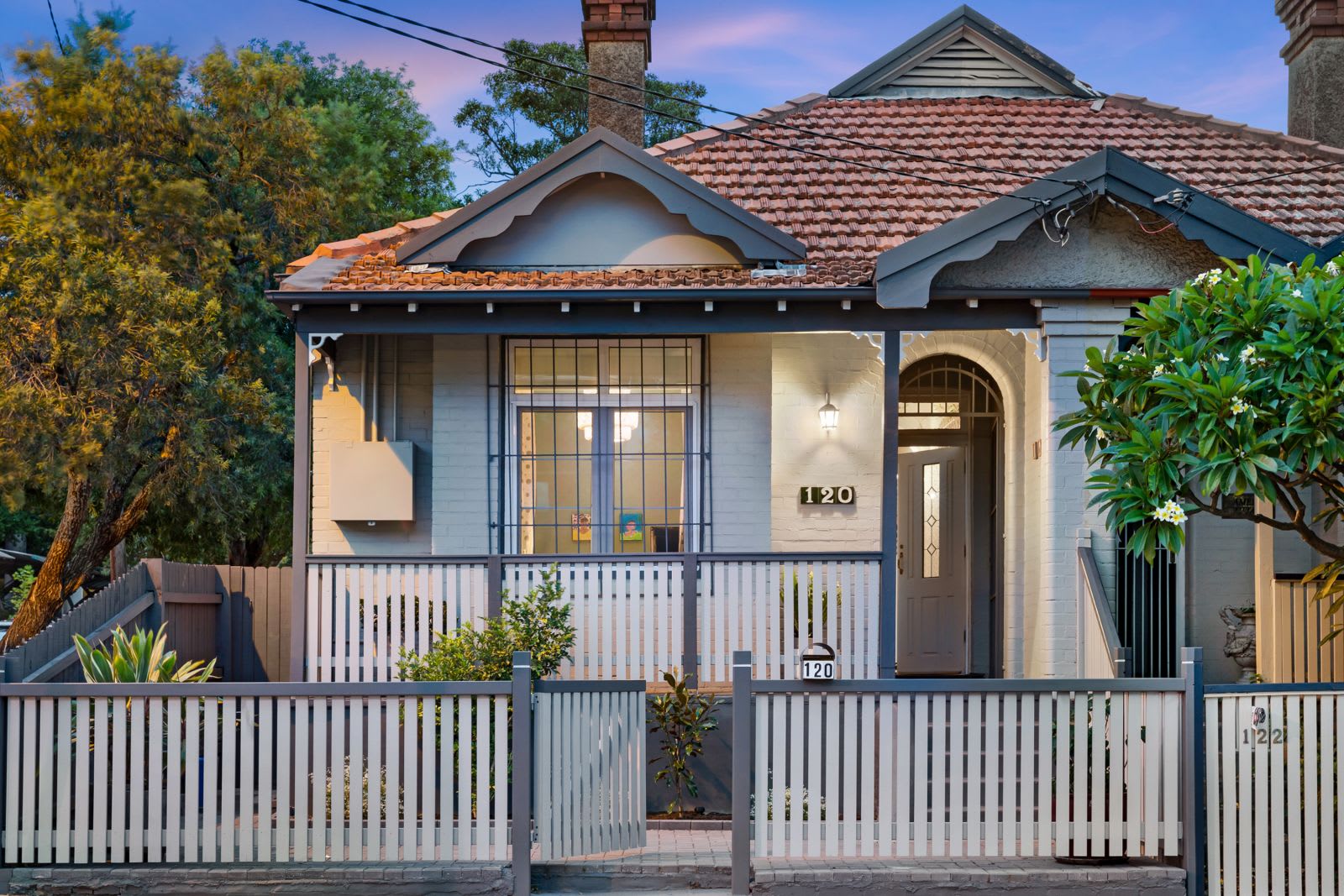
A Local Guide for Local Homesellers
Selling your property is exciting and emotions can run high.
There are a number of things to consider before putting your property on the market inluding choosing a method of sale, determining a price and how to market your property to the right buyer.
Every homeseller wants to know:
- How much is our property worth?
- How long will it take to sell?
This guide is an open-book, full of transparent information and data to arm you with confidence before speaking to any real estate agent.
Should You Buy or Sell First?
Moving into a new home means you’ll need to consider what is happening with your old home.
Forever and a day, homebuyers have asked themselves two questions:
- Should we sell before we start looking?
- Should we buy first and then put our property on the market?
Consider the advantages versus the disadvantages and make the best choice for you.
Buying first advantages |
Selling first advantages |
|
A major benefit of buying a home first, if you can afford it, is that you can move all of your belongings directly into This also allows you to take as much time as you need to sell your old home, which can be staged to increase its appeal while you live in your new home. |
Selling your home first allows you to know exactly what you’re working with in terms of budget. You will be better situated to make a sale if you don’t have another home already. There’s no pressure to sell by a certain deadline, which gives you the time to work out the most effective marketing strategy and wait for the right price. |
Buying first disadvantages
The major drawback in buying a home first is that it takes a certain level of financial comfort to make this a possibility.
There are additional costs associated with owning dual properties. You’ll also need to be able to put down money for a deposit on a new property, without having any money from the sale of your current property to help.
Selling first disadvantages
If you are unable to buy a new place in time for the settlement date; you and your family will need to find temporary accommodation until you are able to purchase a new place.
This can be expensive and stressful since you will need to go through a full move more than once. There’s also the possibility that property prices will go up before you are able to purchase a new home.

Other Factors To Consider Before Selling
Economic Conditions
As the economy grows and wages increase more people can afford to buy a house, this in turn increases overall demand, which increases prices. If demand for property increases faster than supply, then house prices go up. For house prices to fall the demand needs to fall.
When interest rates rise, mortgage lenders generally increase the cost of variable mortgage payments. These higher interest rates in turn make home buying less attractive. Since the majority of Australian homeowners have variable mortgages, even a small change in interest rates can have a big impact on the affordability of buying a house.
Market Conditions
It’s important to know what type of market you are working with to avoid any impact on whether or not you are able to sell your home for the price you desire. A “buyers market” is favourable to those who are buying property because more people are selling homes than there are potential buyers to purchase them. On the other hand, a “sellers market” occurs when there are more buyers looking for property than there are properties up for sale.
In addition to the buyer’s and seller’s markets, a “neutral market” could be caused by affordable interest rates leading to an even balance between buyers and sellers meaning the real estate market doesn’t favour the seller or the buyer. A professional in your area will be following sales closely and will know whether it is a hot, cold, or neutral market.
How Much Is My Property Worth?

It’s a question every homeseller wants to know.
There are individual factors in each home that determine how much you should expect it to sell for. But with so many places to get an estimate, how can you tell which one is right? A valuer? A buyer? A real estate agent? Online estimates?
Always remember that no matter which one you engage you’ll want to see evidence of their reasoning for the number they provide.
Professional Valuers
According to the Australian Property Institute, an Australian Property Institute Certified Practising Valuer is a person who, by education, training and experience is qualified to perform a valuation of real property.
An experienced and competent valuer will have a fair understanding and knowledge of a particular area and will start by searching for completed sales of comparable properties. With constantly fluctuating market conditions, these sales need to be recent transactions and preferably within the past six months.
Top tips if you are engaging a valuer
Presentation: Make sure the gardens are looking nice and the clutter throughout the house is cleaned up and all that sort of thing. Because first impressions,
even with property valuers, do count.
- Recent Sales Evidence: If you know the sale prices achieved at any recent property sales in your area, have that information available for the property valuer.
- Clear Instructions: If you have plans for future improvements
Real estate agents
Real estate agents provide what is known as an ‘appraisal’, rather than a valuation. They base their appraisals on other sales in the area and their experience. Remember, real estate agents are working for the seller (which could be you) who pays the commission on the price they achieve, not the official valuation. Local agents will also have an extremely intimate knowledge of the area, as well as the type of buyers and any current changes in interest. This will put you in good stead.
Online valuations and reports Online valuation methods have become more and more accessible to homesellers today and are often the first place they go for a quick and easy report. While these valuations can provide useful general information, remember that no one has walked through the property and factors that make it comparable or not comparable may be lost.
What’s the difference?
A professional valuation is based on market analysis and doesn’t tell you how much someone might be interested in your home. Using this method alone to decide how much your property should be priced when it hits the market could affect the potential selling price of your property.
However, agent appraisals can also differ depending on who you speak to and what selling price they think can be obtained for you if they were your agent. So relying on just one agent appraisal can be of equal disadvantage.
Choose Your Agent
Choose an agent who will go into battle for you
The agent you choose is the person you are trusting to help you transition into the next stage of your life by achieving the desired sales price for your home in the shortest time possible.
You are relying on them to understand what is most important to you in making that transition and ensuring it is a positive experience in the process. So it is critical that you ask all of the right questions at the start.
These are some of the most important things you should know about a real estate agent:
- Are they licensed under state legislation to work in real estate?
- Are they working with you to achieve your desired result as opposed to just any result?
- Do they have a thorough knowledge of your chosen method of sale (eg: auction)?
- Do they have references and referrals from current and past clients that can be verified?
Don’t be scared to ask these questions, along with the following:
|
|
Methods of Sale
There’s more than one way to sell your property – and you may have a preference of how you’d like to go about it.
Here are the most common methods of selling a home.
Auction
This is a popular way to buy and sell property. You set a reserve price with your agent (the minimum price you will sell your property for) and the agent conducts the auction on the specified date. There are laws for conducting an auction, so it is better left to a professional! If bids don’t reach your reserve price, your agent may negotiate with the highest bidder on your behalf.
Get Your Buying at Auction Booklet
Private Treaty
A sale by private treaty means you offer the property to the market at a listed price and invite offers from interested purchasers. When offering a property for sale by private treaty you have the ability to vary the price whilst it is on the market and you will also have the opportunity to consider each individual offer from potential purchasers. Your real estate agent will be able to offer advice on realistic selling prices and you can amend the details in your signed Agency Appointment form if required, by variations which must be in writing and signed and dated by both you and the sales representative. Although the exact time frame will depend on market conditions, a sale by private treaty could take longer than a sale by auction, and it could involve more negotiation. Yet the number of offers you receive gives you and your agent important feedback on the accuracy of your sale price. Rather than waiting for the results of an auction to make adjustments, you can afford to be more flexible with your pricing plan.
Off-market Sales
Although a competitive marketing and sales process is normally the best way to achieve the highest price for your property, sometimes, there are good reasons to sell your home without opening it up to the market.
Maybe you are just not comfortable with an open home process, maybe you have someone living in the property who is unwell or perhaps you just want to skip the fuss. While all agents typically sell homes on the open market, some agents may have premium buyers who may have simply missed out on other properties. More than simply running a “buyer database”, a good agent will work closely with these premium buyers and assist them to purchase off-market properties by matching their interest with a confident and premium offer.
This assists the premium buyers to secure the property with little-to-no competition where they are prepared to pay for that opportunity. The process may secure a good offer for the selling client to release the property without needing to expose it to the open market.
Expressions of Interest
An expression of interest is similar to a private sale/treaty however a formal written offer must be submitted for the property by a specific date.
What Happens on Auction Day
What to expect
For many would-be sellers, the thought of auction day brings about an overwhelming feeling of anxiety and nerves.
The best thing you can do is to be prepared. Knowing how the auction will run and understanding possible outcomes is likely to reduce your stress levels.
Most agents will open the property for inspection at least 30 minutes before the scheduled auction. This allows potential buyers to have a final look at the property, so it is important to ensure that your house is well presented and looking its best.ring this time, the agent must display the mandatory rules and information regarding the auction in a prominent location for potential buyers to see for at least 30 minutes prior to the auction commencing.

Pre-auction offers
Selling before auction can sometimes be more nerve-wracking than attending the auction itself because how do you know if the offer you’ve received is as good as, if not better, than what could be achieved on auction day?
You will already have discussed potential selling price ranges with your agent and for a pre-auction offer to be considered, it should really stand out in order for you to consider it.
What is a vendors bid?
‘Vendor bids’ are commonly made by an auctioneer on behalf of a seller to get bidding started if a bid is not immediately forthcoming at the commencement of an auction.
They may also be made during the course of an auction, and also if a property is to be passed-in unsold, with a view to protecting the seller’s reserve price.
You should view a ‘vendor bid’ as the auctioneer’s indication the current level of bidding is below the seller’s expectations. If the registered bidders are intent on buying, they will need to bid above the ‘vendor bid’.
The auctioneer’s job
Legislation differs in all states so first and foremost the auctioneer must be familiar witth all local legislation and requirements for conducting an auction.
A good auctioneer is excellent at reading body language and is great at creating a buzz amongst the crowd. Auctioneers have different ways of conducting an auction. Generally, they aim to encourage as many registered bidders as possible to compete, to achieve the highest possible price.
The auctioneer can set the amount by which bids increase. These are called rises or bidding advances.
A few extra things to consider
Your agent should provide you with a detailed schedule of what is likely to happen on auction day. If this is not provided then you should ask him/her to do so. Issues may include: where should I be during the auction, what if no-one bids, what happens if we don’t reach the reserve, should I have my family and friends with me for support?
Depending on the outcome of the bidding process, you may take either of the following actions after the auction is over:
Your property has not sold – if the outcome of the auction was that the property did not sell, you will discuss your options with the agent.
This may include re-advertising and marketing the property for sale at an agreed price.
Your property has sold – if your reserve has been met and the property has sold, the auctioneer will invite the purchaser to sign the contract of sale and pay the deposit. Your house will then be sold and the stress of auction day will be over!
Marketing and Advertising Your Home

One of the most important factors involved in selling your home is marketing it effectively to potential buyers.
With the rise of online consumer behaviour across all demographics, there are more methods of marketing in the real estate industry than ever before.
There are many factors that a qualified real estate agent must take into consideration as they start to work out a sales and marketing strategy and they should discuss these with you at the start and take on board any special requests you may have.
It’s helpful to work with an agent who has experience selling homes in your local area. With a focussed knowledge of your prospective buyers, they will be able to tightly fine-tune the campaign to highlight the details of your property and neighbourhood.
Photography |
Video |
Signboards |
|
When potential buyers are scrolling A photograph will often be the |
It’s said that a picture says a Video slideshows with still pictures |
Traditional advertising methods like The best designs usually include invite those walking or driving by |
Print Marketing
Not all print marketing has been rendered ineffective. A good agent will provide their local marketplace with printed materials to inform the public of up to date sales information on a regular basis.
Online
The internet has dramatically changed the way people market their property for sale. The world wide web can be accessed anywhere in the world, at anytime and allows updates to be made in the blink of an eye. Your real estate agent essentially has a shopfront online that never closes. According to realestate.com.au, 88% of potential buyers use online as their main tool to search for property,
So online is a very important part of your advertising schedule. However, with so many properties advertised online every day and the sheer amount of information available to consumers, it is important to know how to stand out from the crowd. The key is to have an agent who understands the importance of outstanding presentation of your property online starting with professional quality photos and outstanding copy. In addition to listing your property on the major internet portals and the agency website, your selected agent should have an engaged database of prospective qualified buyers who they have already met and alert them with suitable properties when they become available either via email or phone. Agents with an active database are suitably engaged in the local community and will most likely know the target market for your property to market it accordingly.
Your agent may have access to ‘feature property’ listings on the major sites which is a great way to rank higher in the list of available properties in your area.
With the amount of properties listed every day in every marketplace, this is an option you should consider to make sure your property doesn’t fall down the list and you should speak to your agent about having this applied to your property advertisement.
Think of it this way. When was the last time you searched the second page of Google?
Preparing Your Home for Sale

It’s often said that ‘first impressions last’
This is especially true when it comes to presenting your property for sale.
That means a tidy and presentable interior and exterior, as many people will drive-by before deciding whether to inspect it on open days.
Your property is usually just one in a very long list of properties a buyer will see, so it’s crucial that they see it in the best possible light. The more desirable your property appears, the better your sale price is likely to be.
You can spend a lot of time and money on presenting your property perfectly online with professional photos and videos but it can be all for nothing if a buyer drives by or inspects the property and it doesn’t match their expectations from the online advertisment.
External tips |
Internal tips |
|
|
Other tips
It is important not to over capitalise when making improvements. The cost to improve particular areas may not net a higher return in the sale price.
If your furnishings are a little outdated but you do not have the time or money to replace them, you may wish to consider hiring a stylist. An experienced stylist will replace your belongings with hired furniture, to give your property a makeover.
Try to coordinate open for inspections at times that may present your property in the best possible way.
Video
Video URL: https://www.youtube.com/watch?v=7VH9UdV0TQE
Click here to open this video in a new tab
What Happens After Your Property Is Sold
First of all, congratulations!
You’ve gone through a lot just to get to this stage so you deserve to celebrate. You can enjoy the excitement of finding or getting ready to move into your new home but there are just a couple of steps left to take care of.
The contract of sale |
Contract to settlement |
Finance |
|
The purchaser usually signs the The initial Contract of Sale is usually |
From the time both parties have You and your agent and solicitor The buyer is entitled to inspect |
You may have bought a new home A bridging loan is when the lender According to LoanMarket the right
|
On settlement day
On settlement day, at an agreed time and place a settlement agent (solicitor or conveyancer) meets with the lender and the seller’s representative to sign and hand over documents and cheques – neither the buyer nor the seller need to be there. Your settlement agent should contact you to let you know if settlement went
through successfully. Sometimes settlement meetings are delayed. If this happens, your solicitor and conveyancer will reschedule and let you know.
If you’re concerned about penalties or other issues that impact your moving date, you should speak to your solicitor and conveyancer to work out what can be done if it becomes delayed for an unreasonable amount of time.
Once you have handed over the keys to your agent, the property must be completely vacant and ready for its new owners.
After settlement
Once the solicitor for both parties have confirmed in writing that settlement has occured, your agent will be instructed they can release the keys to the buyer. It is not unusual for the notification of settlement to take a few hours to come through so it is best to ring and check with your solicitor and agent.
The other thing about settlement day? It’s EXCITING!
You are about to move into your new home and onto the next stage of your life.

Contact Us

Marriott Lane Real Estate
Office: (612) 9906 2300
Fax: (612) 9906 2322
Email: info@marriottlane.com.au
Web: marriottlane.com.au
Address: 61 Alexander Street, Crows Nest NSW 2065
Principal
Wayne Marriott 0400 540 423 | wayne@marriottlane.com.au
Business Manager
Christine Chiara-Smith 0400 566 291 | christine@marriottlane.com.au
Disclaimer
Please note that much of this publication is based on personal experience and anecdotal evidence. Although the author and publisher have made every reasonable attempt to achieve complete accuracy of the content in this eBook, they assume no responsibility for errors or omissions and the views expressed herein do not necessarily reflect the opinion of the publisher. It is intended to provide general news and information only. The content does not take into account your personal objectives, financial situation or needs. Any trademarks, service marks, product names or named features are assumed to be the property of their respective owners, and are used only for reference. There is no implied endorsement if we use one of these terms. Readers are advised to contact their financial adviser, broker or accountant before making any investment decisions and should not rely on this eBook as a substitute for professional advice. All information is current as at publication release and the publishers take no responsibility for any factors that may change thereafter.
